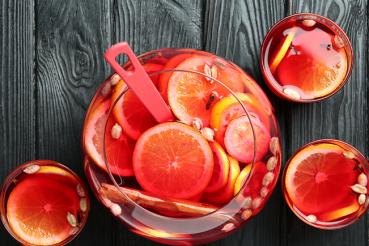There are foods, like candy, that we know are bad for us. And there are foods, like spinach, that we know are full of nutrients.
But there are also foods, like potatoes, about which a lot of us are confused. And some fare flies under the radar altogether, without much of a popular reputation. (What do you know about oregano? Or sesame oil?)
This is unfortunate, because a lot of foods not widely known for wholesomeness actually have a lot to offer, nutrients-wise.
A few good carbs
Carbs, for example, get a bad rap, sometimes with good reason: The carbohydrates found in sugary drinks, pasta and many other processed foods don’t have many redeeming qualities. They can contribute to weight gain, heart disease and other health problems.
But these carbs shouldn't give the whole category a bad name. Carbohydrates — it's sometimes easy to forget — are our main source of energy. They are a component of grains, fruits, vegetables and even dairy products. Like fats and proteins, they are macronutrients, one of the groups that make up the building blocks of all our food.
Many foods rich in carbohydrates can be good choices:
- (Some) bread
A lot of people are anti-bread, but there's plenty of research showing whole grains are beneficial to heart health, and one place you can find whole grains is bread.
Just make sure the type you choose has at least three grams of fiber per slice and lists whole wheat or another whole grain (such as oats) as its first ingredient. And because even with healthy bread, it's easy to eat too much, limit your portion size to a slice or two.
- Popcorn
This whole grain is high in fiber and actually a great thing to eat, depending on how you prepare it. The healthiest method is to buy your own kernels and air pop them in the microwave using a brown paper bag with the top tightly folded.
You can also use an air popper or a covered saucepan and a tablespoon or two of olive oil. Movie theater popcorn, pre-packaged microwave popcorn and pre-popped popcorn generally contain too much salt and fat.
- Potatoes
As with popcorn, whether potatoes are healthy depends on how you prepare them. If they're fried, drowned in butter or loaded with mountains of cheese, sour cream and/or bacon, they could contribute to weight gain and heart problems. But you could reap health benefits from occasionally munching on a few baked potato wedges or baked potatoes topped with a tablespoon or two of plain Greek yogurt.
Potatoes have a lot of potassium, and Americans are always short on potassium. We get 50 percent of what we need, on average, and high potassium intake is important for controlling blood sugar, among other things. And if you choose a sweet potato, you'll get not only potassium but also your daily recommended intake of vitamin A.
A lot of people are anti-bread, but there's plenty of research showing whole grains are beneficial to heart health, and one place you can find whole grains is bread.
Macronutrients versus micronutrients
Potassium and vitamin A are just two of the many micronutrients our bodies need to work properly. Remember: Macronutrients (carbohydrates, proteins and fats) provide the calories, or energy, in our food.
They include minerals, such as potassium; calcium (found in many dairy products, broccoli and tofu); and iron (found in green vegetables, red meat, poultry and eggs). They also include vitamins from A to K.
Polyphenol powerhouses
Polyphenols — another important type of micronutrient — aren't as much of a household name, probably because researchers started uncovering their health benefits more recently.
Polyphenols have properties that help our bodies fight cancer, inflammation and heart problems, among others. They're what give dark chocolate and red wine those often-reported health benefits. Chocolate and wine, though, aren't the only polyphenol powerhouses. Here are some others you may not know about:
- Tea and coffee
- Sesame oil and olive oil
- Green olives and capers
- Grapefruit, oranges, blueberries and plums
- Oregano and turmeric
- Cocoa
- Almonds and walnuts
As with most foods, you shouldn't go overboard with these items. If you eat too many olives and capers, you risk consuming too much sodium, which can lead to high blood pressure. Oils are high in calories and could lead to weight gain if you eat more than a tablespoon or two at a time.
The trick, as usual, is balance. When working polyphenol-rich foods into your diet, make sure you're not exceeding recommended daily limits of fat, sugar, sodium or calories. Your nutritional needs and recommended limits depend on your age, sex and level of activity. Talk to your primary care doctor or a dietitian if you're not sure what or how much you should be eating.




